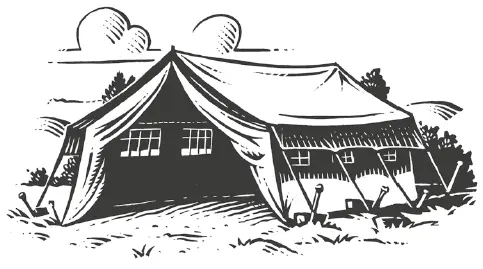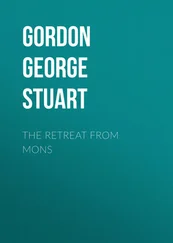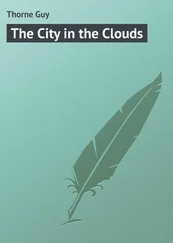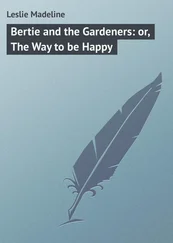A couple more hours passed while Jonny dismantled and reassembled the engine. It made no difference. At length, he puffed out his cheeks. ‘Well, I don’t know what’s wrong. Everything works fine. It should start.’ By this time, the field was almost empty and a steady drizzle was falling. We were saved by an old boy wandering by. He told us to check a tiny lever hidden out of sight on one side of the engine. Somehow it had mysteriously moved from ‘ON’ to ‘OFF’. ‘I think someone’s played a joke on you,’ he said.

It was months before we finally got the saw-bench rigged. After a rudimentary course of tractor-driving instruction, Jonny departed, leaving me to make jerky, undignified forays up and down the track, trying to master the clutch. This tended, however gently it was engaged, to snatch, catapulting the machine forwards in ungainly kangaroo bounds. Vez, presented with my sly fait accompli, was magnificent, even agreeing the tractor looked just so, and made us appear less like urbanites (an accommodation assisted, unquestionably, by an envelope from my father which arrived a few days after the auction containing a cheque for the price of the Fergie and a fairytale about finding more money in an account than he’d expected).
From a company Jonny told me about (‘A & C Belting’), I ordered a rubberized canvas belt and the next time he visited, we heaved the eye-poppingly heavy bench into position, pegging it into the dirt floor of the barn with eighteen-inch iron pegs. * Then Jonny oiled and greased the blade shaft and pulley wheel spindles. With much to-ing and fro-ing, we positioned the tractor. We chocked the wheels and connected up the pulley belt between the tractor and the saw-bench. We engaged the tractor’s pulley wheel, setting the belt turning. Then I pulled the iron lever on the saw, which slid the belt across to drive the blade. The saw cranked into life.
It was simply terrifying. I’d never been so close to a machine that was so blatantly lethal. The belt flapped and slapped between the pulley wheels, hungry to snag any loose clothing or inquisitive passing child. The blade whirred and squeaked like a giant bacon slicer, though the sound was quaintly soothing and almost musical: the rattling rhythm of the Fergie’s engine, the regular ting-ting of the staples in the belt as they passed over the iron pulley wheels. I found some small branches and pushed them towards the blade to warm it up (something the man from A & C Belting had advised). The saw scarcely noticed. After a few of these I pushed a thick old stump forwards with a stick. The blade screamed as it bit into the wood, and the tractor engine chugged harder, reverting to its gentle clatter as the cutting finished, the blade ringing as the severed timber thudded onto the ground. The smell of sawn wood filled the air. It was sensational.
Wood was strewn all over the place at Tair-Ffynnon: shambolic heaps of logs and stumps, hedging offcuts, old fence posts, sections of telegraph poles and sleepers, as if a giant had been playing Pick-Up Sticks before being called away mid-game. To at last be clearing it was satisfying work. Some timber cut more easily than others. Yew and old oak were so hard their sawdust was as fine as flour. Sappy larch and fir released a delicious piny smell, but the resin gummed the blade, making the belt slip. As my confidence increased I discarded my stick, pushing the logs forwards by hand. Occasionally, with the scrap wood, the saw would hit a nail or a staple, screeching and sending out showers of sparks. Soon the iron table top shone and the feet of the bench were lost in deepening heaps of sawdust that dusted every surface like snow.
True, I couldn’t quite banish the image of a gross-out, splatter-movie death. A momentary lapse of concentration, a trip from catching my foot on something buried beneath the sawdust, and—the wood chipper scene from Fargo or Johnny Cash’s brother in Walking the Line. My hand, or arm (or head) in the log pile. But the tangle of timber was transmogrifying into a neat pile of logs for splitting. And all that fear worked up a prodigious appetite.
Maybe stockpiling wood is in our genes as hunter-gatherers. Stacked wood bespeaks security, cosiness, preparedness for winter. Perhaps it’s because it’s exercise with a purpose, or a way of clearing one’s head. ‘I chop wood,’ Gladstone told the journalist William T. Stead, ‘because I find that it is the only occupation in the world that drives all thought from my mind.’ *
Maybe it’s all the associations that come with an axe: the forest clearance, the ancient oaks of England on which a navy and an empire were built. Or the perfection of its form. If an hour’s wood-chopping is soothing work, it must be because quite so much hopping around, swearing, trying to extricate the wedged head has taken place over the 1.2 million years of steady R&D devoted to this, the prototypical tool. Though in fact it’s not a tool, it’s a simple machine, using leverage to ramp up the force at the cutting edge, and dual-inclined planes to enhance the splitting action. That head is drop-forged from medium carbon steel (the flaring cheeks averaging twenty-nine degrees): hard enough to hold an edge, yet not so brittle it shatters. The shaft (of ash or hickory so it won’t splinter or split from the strain) is kinked for easy swinging by anyone of average height. And it’s a philosopher’s axe—not a rake or broom—over which we puzzle: is it still our grandfather’s if our father replaced the head and we the shaft? The Director of the British Museum recently called the axe ‘the most successful piece of human technology in history’.
Not bad for twelve quid from Homebase.

A glance around at the landscape should have warned us what we were in for. Where rowan and hawthorn trees bend at permanent right angles, man wasn’t meant to plant Jerusalem artichokes and rhubarb.
ELIZABETH WEST, Hovel in the Hills , 1977
‘Was Granny’s garden in the Yellow Book?’
‘It was.’ My father could compress much meaning into two words.
‘At Rookwoods?’
‘At Rookwoods. And again when she moved to Bath. She was very much the magnanimous charity worker, remember’ (that was pretty loaded, too). I’d been sporadically quizzing him about the National Gardens Scheme since hatching my plan, but it had only recently occurred to me that Rookwoods itself might have been in the Yellow Book.
‘And…?’
‘Well, it was the kind of menace you might imagine. We all had to dance attendance and ended up doing most of the work. On one occasion she announced she was going on holiday the week the garden was opening, leaving us to take care of it. You can guess how well that went down with your mother.’
‘So you helped, too?’
‘We all had to help.’
‘Didn’t it occur to you to mention this?’
‘Mention what?’
‘The fact that Granny was in the Yellow Book? I’ve been asking you about the Yellow Book for weeks.’
‘No. You never asked that.’
It was July and our move to the sheep-run pastures of Tair-Ffynnon was complete. We’d driven over to the Mendips for one of our periodic Sunday lunches with my father. He greeted us with his usual mock exasperation. ‘Late as ever.’
‘You’d be disappointed if we weren’t.’
Читать дальше














